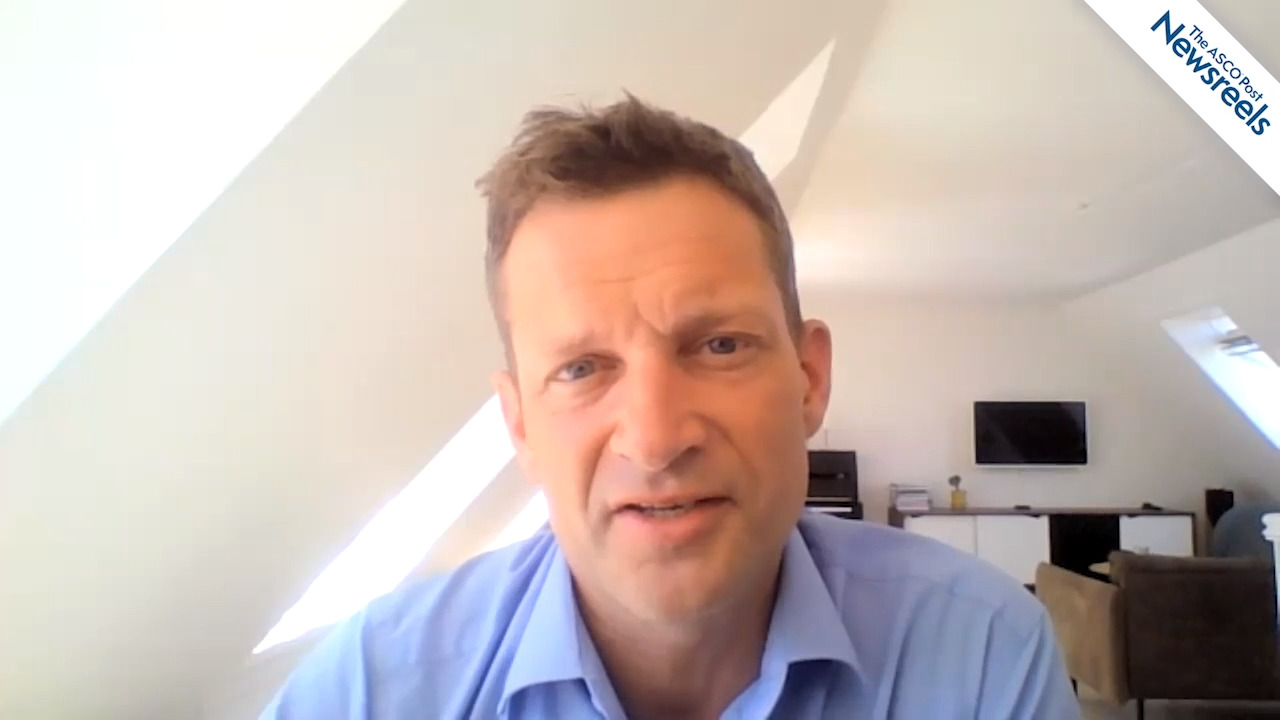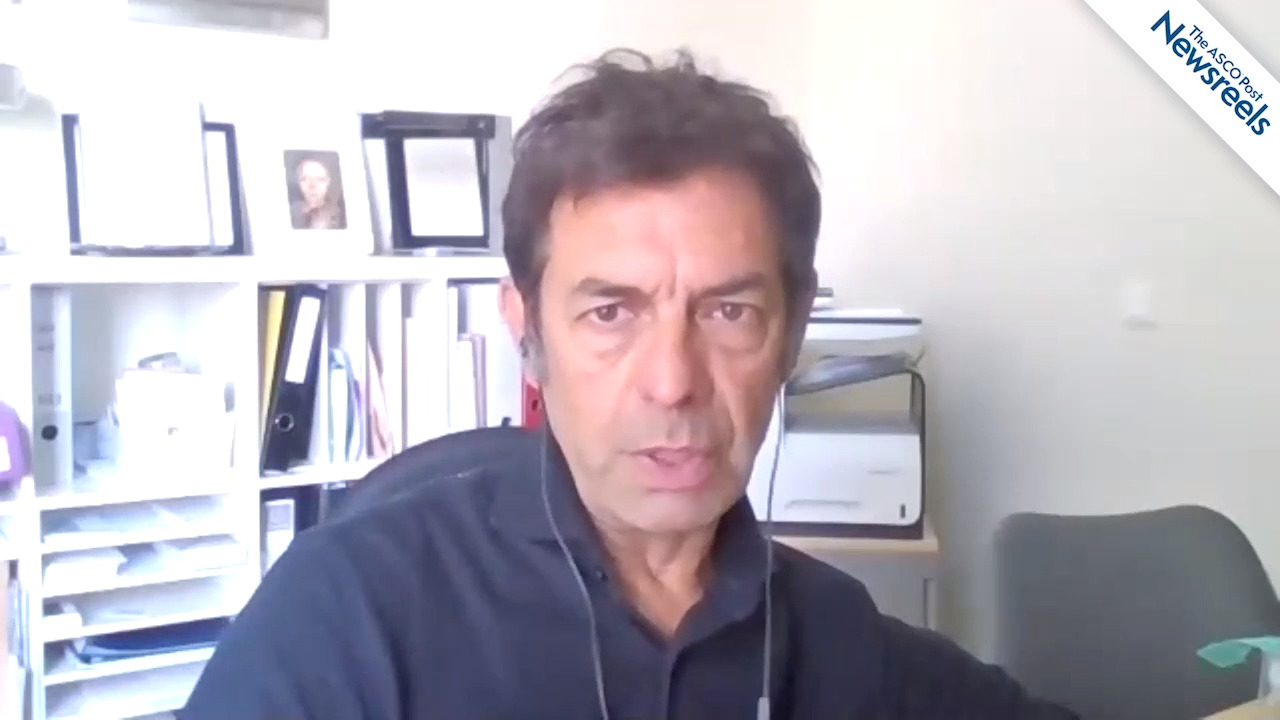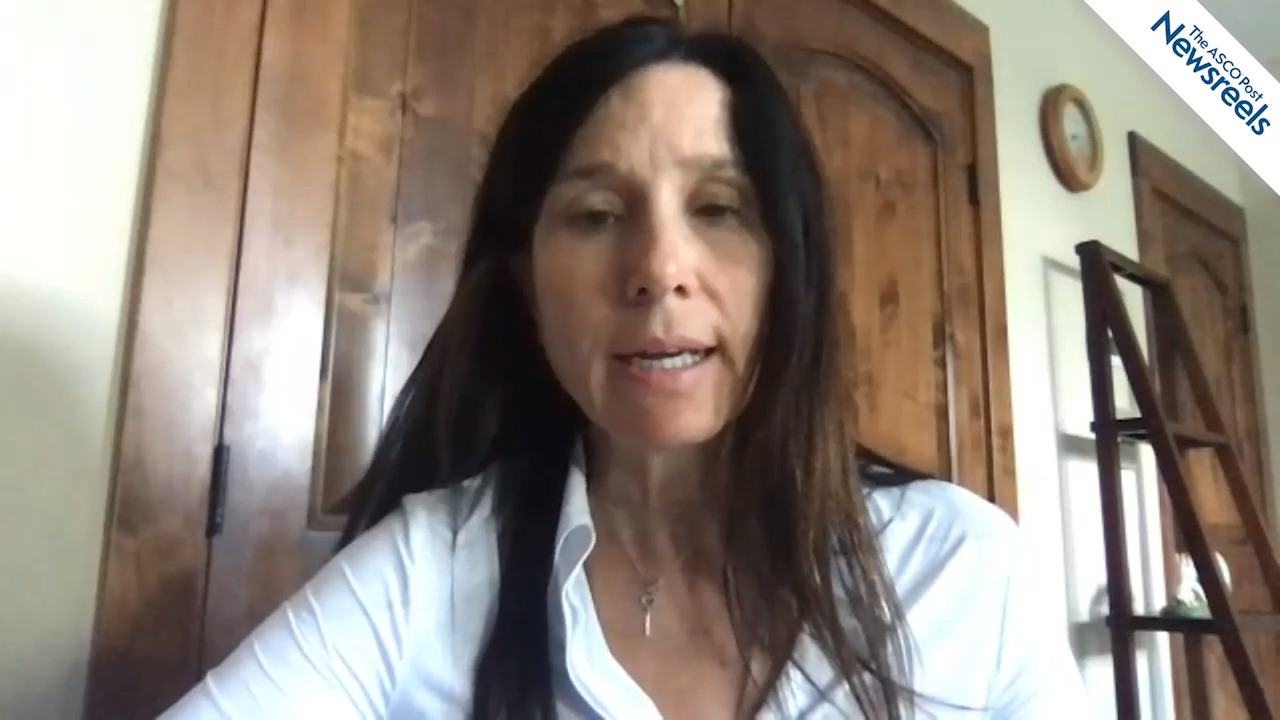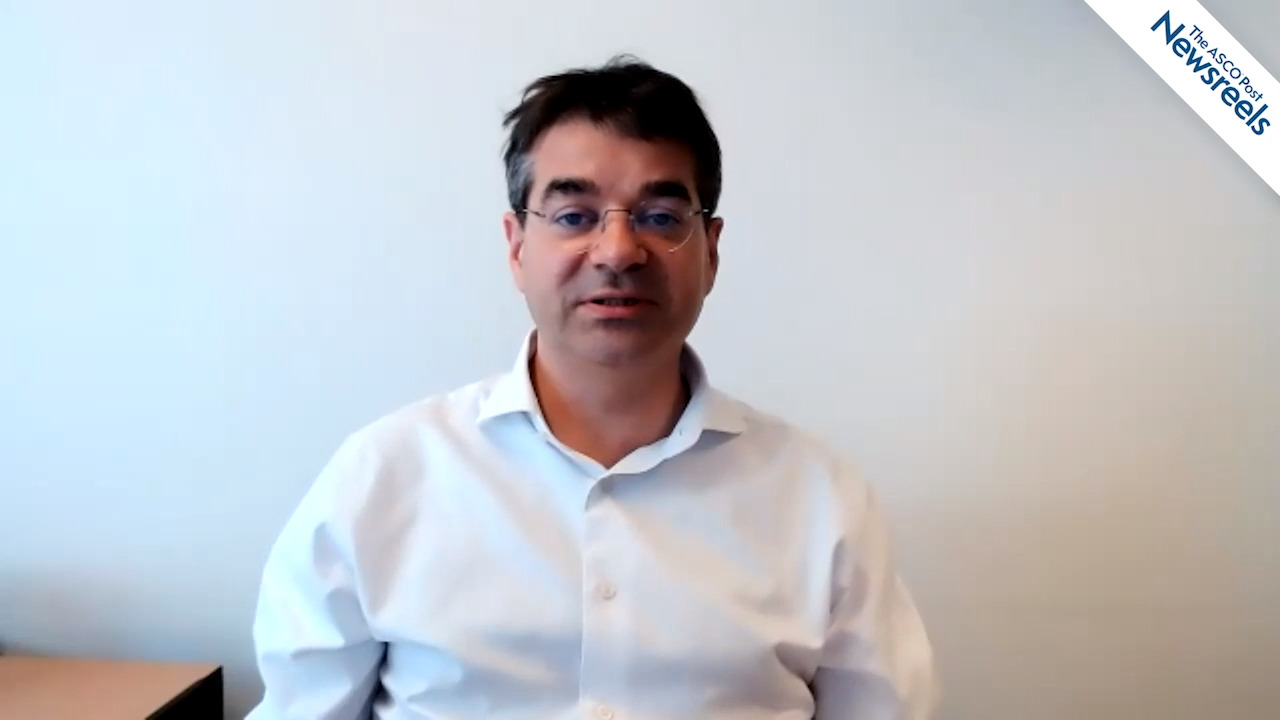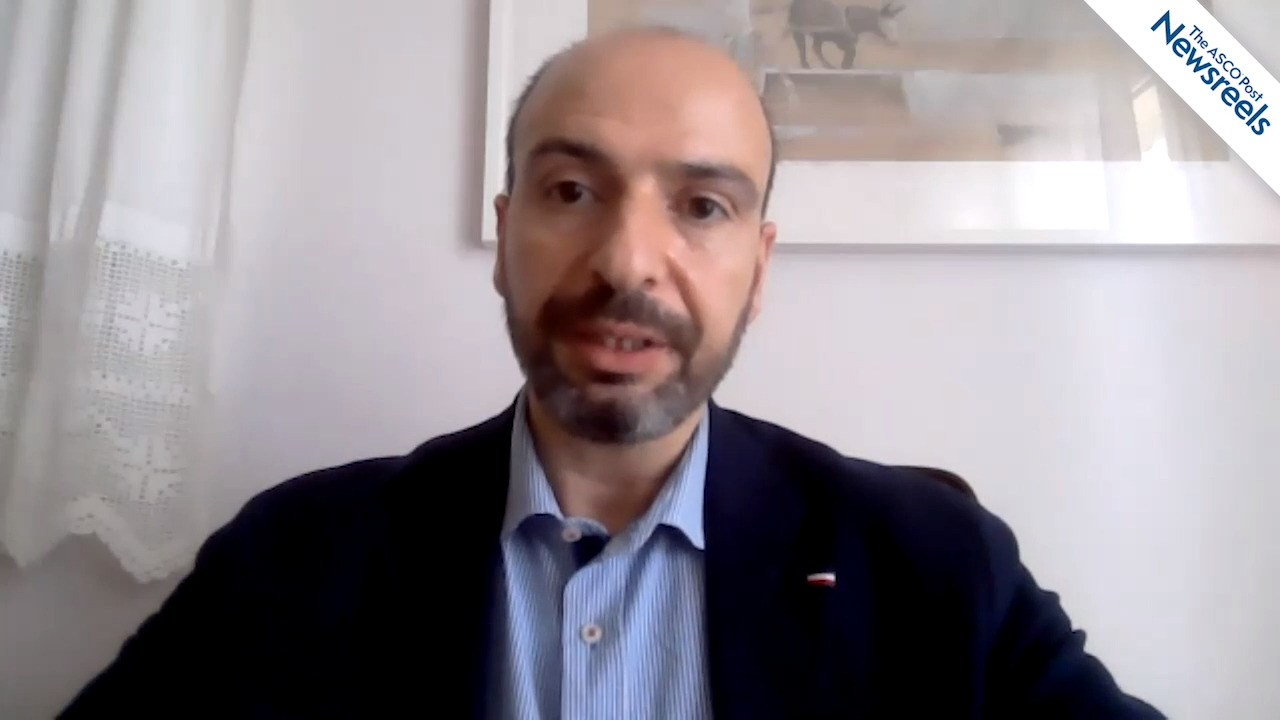Gaurav Goyal, MD, on DLBCL: Comparing R-CHOP and R-EPOCH for Overall Survival Benefits
EHA 2021 Virtual Congress
Gaurav Goyal, MD, of the University of Alabama at Birmingham, reports on findings from a large multi-institutional database study, which showed there was no apparent difference in overall survival between R-CHOP and R-EPOCH among patients with advanced-stage MYC-rearranged, double-hit, or triple-hit diffuse large B-cell lymphoma. Further studies are needed for better risk stratification to optimize outcomes (Abstract S224).
The ASCO Post Staff
Martin Hutchings, MD, PhD, of Copenhagen University Hospital, discusses a 5-year update of the phase III ECHELON-1 study, which suggested brentuximab vedotin plus doxorubicin, vinblastine, and dacarbazine benefits patients with previously untreated stage III or IV classical Hodgkin lymphoma (Abstract S205).
The ASCO Post Staff
Philippe Moreau, MD, of University Hospital Hôtel-Dieu, discusses findings from the CASSIOPEIA trial, Part 1, on daratumumab maintenance vs observation in patients with newly diagnosed multiple myeloma who have been treated with bortezomib, thalidomide, and dexamethasone, with or without daratumumab, and autologous stem cell transplantation (Abstract S180).
The ASCO Post Staff
Cristina Gasparetto, MD, of Duke University, discusses findings from a study that suggests patients with heavily pretreated multiple myeloma benefit from weekly selinexor, carfilzomib, and dexamethasone, which was reported to be active, with an overall response rate of 78% and an overall progression-free survival of 23 months (Abstract S188).
The ASCO Post Staff
Arnon P. Kater, MD, PhD, of the University of Amsterdam, discusses a primary analysis of the phase III GLOW study, which, for the first time, compared the efficacy and safety of fixed-duration ibrutinib plus venetoclax with chlorambucil plus obinutuzumab for first-line treatment of older patients with chronic lymphocytic leukemia (LB1902).
The ASCO Post Staff
Efstathios Kastritis, MD, of the University of Athens, discusses updated phase III results from the ANDROMEDA study of patients with newly diagnosed light chain amyloidosis. The trial further supports the use of daratumumab plus VCd (bortezomib, cyclophosphamide, and dexamethasone), which was shown to be clinically superior to VCd alone (Abstract S189).
